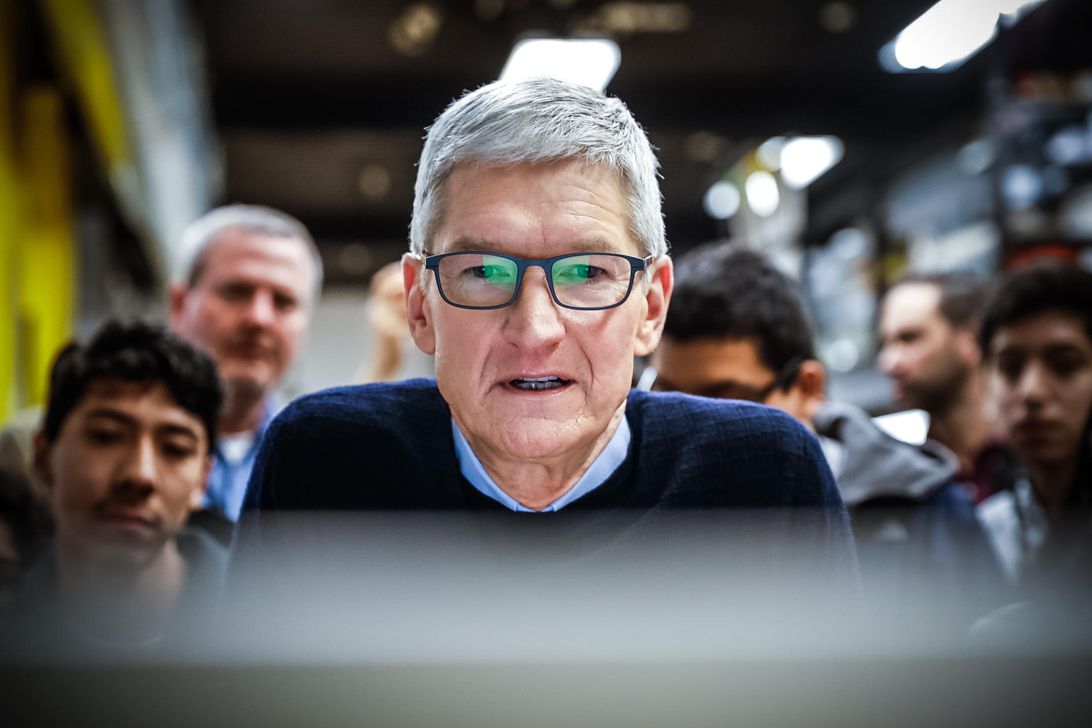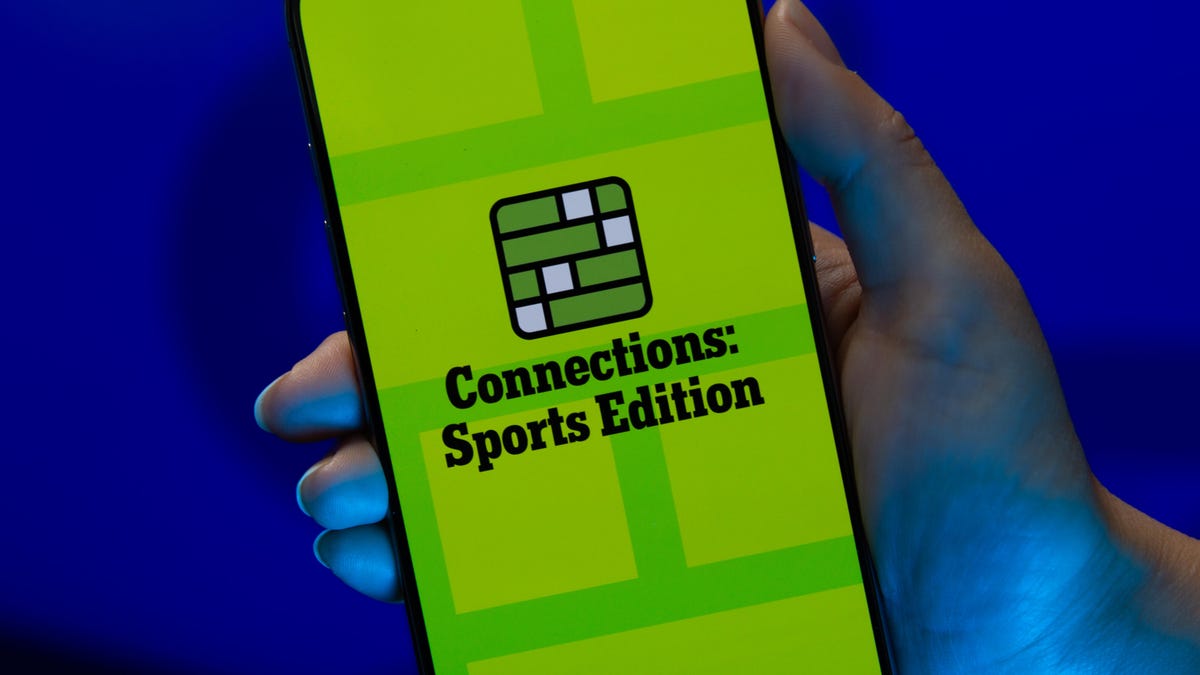Technologies
Tim Cook was named Apple’s CEO 10 years ago. Here are three things he changed
The company we know as Apple looks and acts a lot like the one we all remember from the Steve Jobs-era. But it’s also very different.

In 2012, less than a year after being named CEO of Apple, Tim Cook sat down for an interview with NBC News. He discussed the basics you’d expect about iPhones and Apple stores and even made a surprise announcement that the tech giant would begin assembling some Mac computers in Texas rather than China. Cook also made clear during the interview that, while he understood the responsibility he had to lead one of the world’s most closely watched companies, he wasn’t going to try to emulate its iconic co-founder, Steve Jobs.
«One of the things he did for me — that removed a gigantic burden that would have existed — is that he told me, on a couple occasions before he passed away, to never question what he would have done,» Cook said. «Never ask the question ‘what Steve would do’ — just do what’s right.»
Over the past decade, Cook has waded into culture and politics far more than Jobs ever seemed to do. He came out as gay in 2014 and started giving speeches decrying discrimination across the country. He even walked the tight rope as a social critic of Donald Trump’s policies as president between 2017 and 2021, while attempting to protect Apple’s business from harsh import tariffs.
All the while, Cook kept up Apple’s slow and steady drumbeat of incremental innovation, leading teams that introduced seemingly small improvements over iPhones year after year. Now, Apple in the Cook-era sells some of the most well-respected phone cameras in the industry. And it’s one of the few device makers that builds the computer processing brains that power its phones and computers, too. Those chips, dubbed the A14 and M1 Apple Silicon chips, are considered among the best, as well.
All this has helped to turn Apple into one of the most highly valued companies in the world. Wall Street puts the company at just under $2.5 trillion. And Apple’s $57 billion in profits from $274.5 billion in revenues last year dwarf the $26 billion in earnings the company posted a decade ago, from $108.2 billion in revenue.
Here are three ways Cook changed Apple.
More political
A decade ago, it was very unusual to see a high-profile tech industry leader exchange anything but pleasant words with a world leader. But soon after Cook came out as gay in 2014, he started speaking out on a range of human rights issues. Not a year later, he penned a nearly 600-word piece that ran in The Washington Post addressing discrimination against the gay, lesbian, bisexual and transgendered communities.
«There’s something very dangerous happening in states across the country,» he wrote at the time.
Cook also joined 100 other tech executives from Twitter, LinkedIn, Facebook and Yelp who criticized laws in Indiana and Arkansas written to support «religious freedom» but that critics fear will encourage discrimination against the LGBTQ community.
During Trump’s time in office, Cook became a regular voice speaking out against the president’s immigration moves. He criticized Trump’s statements defending white supremacists and other extremists at a deadly rally in Charlottesville, Virginia. And Cook said Trump’s plans to ban transgender people from serving in the military were wrong.
«We are indebted to all who serve,» Cook wrote at the time. «Discrimination against anyone holds everyone back.»
But Cook was also shrewd with Trump, attending summits with the president and even inviting him to the company’s Mac Pro manufacturing plant in Austin, Texas.
«He’s a great executive,» Trump said once, according to a profile in the Wall Street Journal. «Others go out and hire very expensive consultants. Tim Cook calls Donald Trump directly.»
It hasn’t all gone smoothly. Most recently, Apple’s faced backlash from employees frustrated by how executives are handling return-to-work policies amid the coronavirus pandemic. Though Apple’s pushed back its target date to return to the office to January next year at the earliest, executives have pushed employees to regularly come into the office.
Some employees have also accused the company’s employee resources team of mishandling harassment, sexism, racism and other troubling issues among the company’s roughly 147,000 employees. They’ve banded together on Twitter under the hashtag #AppleToo, and created a website to draw attention to their concerns.
Other companies, including Google, Facebook and Uber, have also struggled to meaningfully respond to similar criticism.
More products
Apple’s long been known for its comparably small product lineup. Under Jobs, Apple served up consumer laptops and desktops, with its MacBooks and iMacs, and offered professional laptops and desktops, with the MacBook Pros and Mac Pros. It sold several different types of iPods as well, but only one version of the iPhone each year.
Under Cook, Apple’s expanded its product lineup to include two standard models of its iPhones, the $699 iPhone 12 Mini and $799 iPhone 12, which CNET’s Patrick Holland said was one of the best phone we’ve ever reviewed. There are also two «pro» models, the $999 iPhone 12 Pro and $1099 iPhone 12 Pro Max. And there’s the lower-cost $399 iPhone SE, which CNET called the best value for the dollar of any iPhone when it came out last year.
Apple also sells at least two different variants of its Apple Watch, not including partnerships with Nike and Hermes, three different AirPods headphones and four different iPads. And it was Cook who pushed Apple into the smartwatch market in the first place.
It’s hard to debate Apple’s success with these products, and it appears the company won’t be changing its approach much with its rumored upcoming iPhone 13 and iPads. And even though Apple’s often criticized for seemingly minimal updates each year, experts say the differences become dramatic when comparing devices further back in time.
«This is what most people don’t understand: Incremental is revolutionary for Apple,» Chris Deaver, who spent four years in human resources working with Apple research teams, told the Wall Street Journal in a story published last year. «Once they enter a category with a simply elegant solution, they can start charting the course and owning that space. No need to break speed records, just do it organically.»
More ambition
Perhaps the most dramatic changes Cook’s made are to what Apple sells us.
Jobs reveled in selling products people could touch and feel, focusing primarily on software as a means to make them work better. He even referenced the computer scientist Alan Kay when introducing the first iPhone in 2007. «‘People who are really serious about software should make their own hardware,» Jobs said, quoting Kay. «Alan said this 30 years ago, and this is how we feel about it.»
Under Cook, Apple’s approach hasn’t changed so much as it’s expanded. To help Apple’s products stand out, Cook in 2019 pushed his company to start offering monthly services ranging from a $10 per month magazine and newspaper aggregation service called Apple News Plus to a $5 monthly gaming service called Apple Arcade, and most recently, $10 per month Apple Fitness Plus workout classes.
Cook promised his company’s $5 per month Apple TV Plus video subscription service would be «unlike anything that’s been done before» when it launched in 2019.
Apple hasn’t said how many people pay for Apple TV Plus subscriptions but has increasingly drawn attention to its overall services business, which in the three months ended June 26 this year pulled in nearly $17.5 billion in revenue. That’s more than Apple’s Mac and iPad businesses combined. It’s also up nearly 33% from the same time a year earlier despite the COVID-19 pandemic, which has has upended billions of people’s lives around the world.
«We’re continuing to stay focused on supporting the global response to the pandemic and delivering the best products and services for people,» Cook said on a July conference call with analysts. «Our greatest source of inspiration, isn’t technology itself, but help people use it in their own lives in ways, great and small, to write a novel or to read one to care for an ailing patient or see a doctor virtually to track their heart rate on a jog or to train for the Olympics.»
Technologies
TMR vs. Hall Effect Controllers: Battle of the Magnetic Sensing Tech
The magic of magnets tucked into your joysticks can put an end to drift. But which technology is superior?

Competitive gamers look for every advantage they can get, and that drive has spawned some of the zaniest gaming peripherals under the sun. There are plenty of hardware components that actually offer meaningful edges when implemented properly. Hall effect and TMR (tunnel magnetoresistance or tunneling magnetoresistance) sensors are two such technologies. Hall effect sensors have found their way into a wide variety of devices, including keyboards and gaming controllers, including some of our favorites like the GameSir Super Nova.
More recently, TMR sensors have started to appear in these devices as well. Is it a better technology for gaming? With multiple options vying for your lunch money, it’s worth understanding the differences to decide which is more worthy of living inside your next game controller or keyboard.
How Hall effect joysticks work
We’ve previously broken down the difference between Hall effect tech and traditional potentiometers in controller joysticks, but here’s a quick rundown on how Hall effect sensors work. A Hall effect joystick moves a magnet over a sensor circuit, and the magnetic field affects the circuit’s voltage. The sensor in the circuit measures these voltage shifts and maps them to controller inputs. Element14 has a lovely visual explanation of this effect here.
The advantage this tech has over potentiometer-based joysticks used in controllers for decades is that the magnet and sensor don’t need to make physical contact. There’s no rubbing action to slowly wear away and degrade the sensor. So, in theory, Hall effect joysticks should remain accurate for the long haul.
How TMR joysticks work
While TMR works differently, it’s a similar concept to Hall effect devices. When you move a TMR joystick, it moves a magnet in the vicinity of the sensor. So far, it’s the same, right? Except with TMR, this shifting magnetic field changes the resistance in the sensor instead of the voltage.
There’s a useful demonstration of a sensor in action here. Just like Hall effect joysticks, TMR joysticks don’t rely on physical contact to register inputs and therefore won’t suffer the wear and drift that affects potentiometer-based joysticks.
Which is better, Hall effect or TMR?
There’s no hard and fast answer to which technology is better. After all, the actual implementation of the technology and the hardware it’s built into can be just as important, if not more so. Both technologies can provide accurate sensing, and neither requires physical contact with the sensing chip, so both can be used for precise controls that won’t encounter stick drift. That said, there are some potential advantages to TMR.
According to Coto Technology, who, in fairness, make TMR sensors, they can be more sensitive, allowing for either greater precision or the use of smaller magnets. Since the Hall effect is subtler, it relies on amplification and ultimately requires extra power. While power requirements vary from sensor to sensor, GameSir claims its TMR joysticks use about one-tenth the power of mainstream Hall effect joysticks. Cherry is another brand highlighting the lower power consumption of TMR sensors, albeit in the brand’s keyboard switches.
The greater precision is an opportunity for TMR joysticks to come out ahead, but that will depend more on the controller itself than the technology. Strange response curves, a big dead zone (which shouldn’t be needed), or low polling rates could prevent a perfectly good TMR sensor from beating a comparable Hall effect sensor in a better optimized controller.
The power savings will likely be the advantage most of us really feel. While it won’t matter for wired controllers, power savings can go a long way for wireless ones. Take the Razer Wolverine V3 Pro, for instance, a Hall effect controller offering 20 hours of battery life from a 4.5-watt-hour battery with support for a 1,000Hz polling rate on a wireless connection. Razer also offers the Wolverine V3 Pro 8K PC, a near-identical controller with the same battery offering TMR sensors. They claim the TMR version can go for 36 hours on a charge, though that’s presumably before cranking it up to an 8,000Hz polling rate — something Razer possibly left off the Hall effect model because of power usage.
The disadvantage of the TMR sensor would be its cost, but it appears that it’s negligible when factored into the entire price of a controller. Both versions of the aforementioned Razer controller are $199. Both 8BitDo and GameSir have managed to stick them into reasonably priced controllers like the 8BitDo Ultimate 2, GameSir G7 Pro and GameSir Cyclone 2.
So which wins?
It seems TMR joysticks have all the advantages of Hall effect joysticks and then some, bringing better power efficiency that can help in wireless applications. The one big downside might be price, but from what we’ve seen right now, that doesn’t seem to be much of an issue. You can even find both technologies in controllers that cost less than some potentiometer models, like the Xbox Elite Series 2 controller.
Caveats to consider
For all the hype, neither Hall effect nor TMR joysticks are perfect. One of their key selling points is that they won’t experience stick drift, but there are still elements of the joystick that can wear down. The ring around the joystick can lose its smoothness. The stick material can wear down (ever tried to use a controller with the rubber worn off its joystick? It’s not pleasant). The linkages that hold the joystick upright and the springs that keep it stiff can loosen, degrade and fill with dust. All of these can impact the continued use of the joystick, even if the Hall effect or TMR sensor itself is in perfect operating order.
So you might not get stick drift from a bad sensor, but you could get stick drift from a stick that simply doesn’t return to its original resting position. That’s when having a controller that’s serviceable or has swappable parts, like the PDP Victrix Pro BFG, could matter just as much as having one with Hall effect or TMR joysticks.
Technologies
Today’s NYT Connections: Sports Edition Hints and Answers for Feb. 18, #513
Here are hints and the answers for the NYT Connections: Sports Edition puzzle for Feb. 18, No. 513.

Looking for the most recent regular Connections answers? Click here for today’s Connections hints, as well as our daily answers and hints for The New York Times Mini Crossword, Wordle and Strands puzzles.
Today’s Connections: Sports Edition has a fun yellow category that might just start you singing. If you’re struggling with today’s puzzle but still want to solve it, read on for hints and the answers.
Connections: Sports Edition is published by The Athletic, the subscription-based sports journalism site owned by The Times. It doesn’t appear in the NYT Games app, but it does in The Athletic’s own app. Or you can play it for free online.
Read more: NYT Connections: Sports Edition Puzzle Comes Out of Beta
Hints for today’s Connections: Sports Edition groups
Here are four hints for the groupings in today’s Connections: Sports Edition puzzle, ranked from the easiest yellow group to the tough (and sometimes bizarre) purple group.
Yellow group hint: I don’t care if I never get back.
Green group hint: Get that gold medal.
Blue group hint: Hoops superstar.
Purple group hint: Not front, but…
Answers for today’s Connections: Sports Edition groups
Yellow group: Heard in «Take Me Out to the Ball Game.»
Green group: Olympic snowboarding events.
Blue group: Vince Carter, informally.
Purple group: ____ back.
Read more: Wordle Cheat Sheet: Here Are the Most Popular Letters Used in English Words
What are today’s Connections: Sports Edition answers?
The yellow words in today’s Connections
The theme is heard in «Take Me Out to the Ball Game.» The four answers are Cracker Jack, home team, old ball game and peanuts.
The green words in today’s Connections
The theme is Olympic snowboarding events. The four answers are big air, giant slalom, halfpipe and slopestyle.
The blue words in today’s Connections
The theme is Vince Carter, informally. The four answers are Air Canada, Half-Man, Half-Amazing, VC and Vinsanity.
The purple words in today’s Connections
The theme is ____ back. The four answers are diamond, drop, quarter and razor.
Technologies
Today’s NYT Mini Crossword Answers for Wednesday, Feb. 18
Here are the answers for The New York Times Mini Crossword for Feb. 18.

Looking for the most recent Mini Crossword answer? Click here for today’s Mini Crossword hints, as well as our daily answers and hints for The New York Times Wordle, Strands, Connections and Connections: Sports Edition puzzles.
Today’s Mini Crossword is a fun one, and it’s not terribly tough. It helps if you know a certain Olympian. Read on for all the answers. And if you could use some hints and guidance for daily solving, check out our Mini Crossword tips.
If you’re looking for today’s Wordle, Connections, Connections: Sports Edition and Strands answers, you can visit CNET’s NYT puzzle hints page.
Read more: Tips and Tricks for Solving The New York Times Mini Crossword
Let’s get to those Mini Crossword clues and answers.
Mini across clues and answers
1A clue: ___ Glenn, Olympic figure skater who’s a three-time U.S. national champion
Answer: AMBER
6A clue: Popcorn size that might come in a bucket
Answer: LARGE
7A clue: Lies and the Lying ___ Who Tell Them» (Al Franken book)
Answer: LIARS
8A clue: Close-up map
Answer: INSET
9A clue: Prepares a home for a new baby
Answer: NESTS
Mini down clues and answers
1D clue: Bold poker declaration
Answer: ALLIN
2D clue: Only U.S. state with a one-syllable name
Answer: MAINE
3D clue: Orchestra section with trumpets and horns
Answer: BRASS
4D clue: «Great» or «Snowy» wading bird
Answer: EGRET
5D clue: Some sheet music squiggles
Answer: RESTS
-

 Technologies3 года ago
Technologies3 года agoTech Companies Need to Be Held Accountable for Security, Experts Say
-

 Technologies3 года ago
Technologies3 года agoBest Handheld Game Console in 2023
-

 Technologies3 года ago
Technologies3 года agoTighten Up Your VR Game With the Best Head Straps for Quest 2
-

 Technologies4 года ago
Technologies4 года agoBlack Friday 2021: The best deals on TVs, headphones, kitchenware, and more
-

 Technologies5 лет ago
Technologies5 лет agoGoogle to require vaccinations as Silicon Valley rethinks return-to-office policies
-

 Technologies5 лет ago
Technologies5 лет agoVerum, Wickr and Threema: next generation secured messengers
-

 Technologies4 года ago
Technologies4 года agoOlivia Harlan Dekker for Verum Messenger
-

 Technologies4 года ago
Technologies4 года agoiPhone 13 event: How to watch Apple’s big announcement tomorrow
